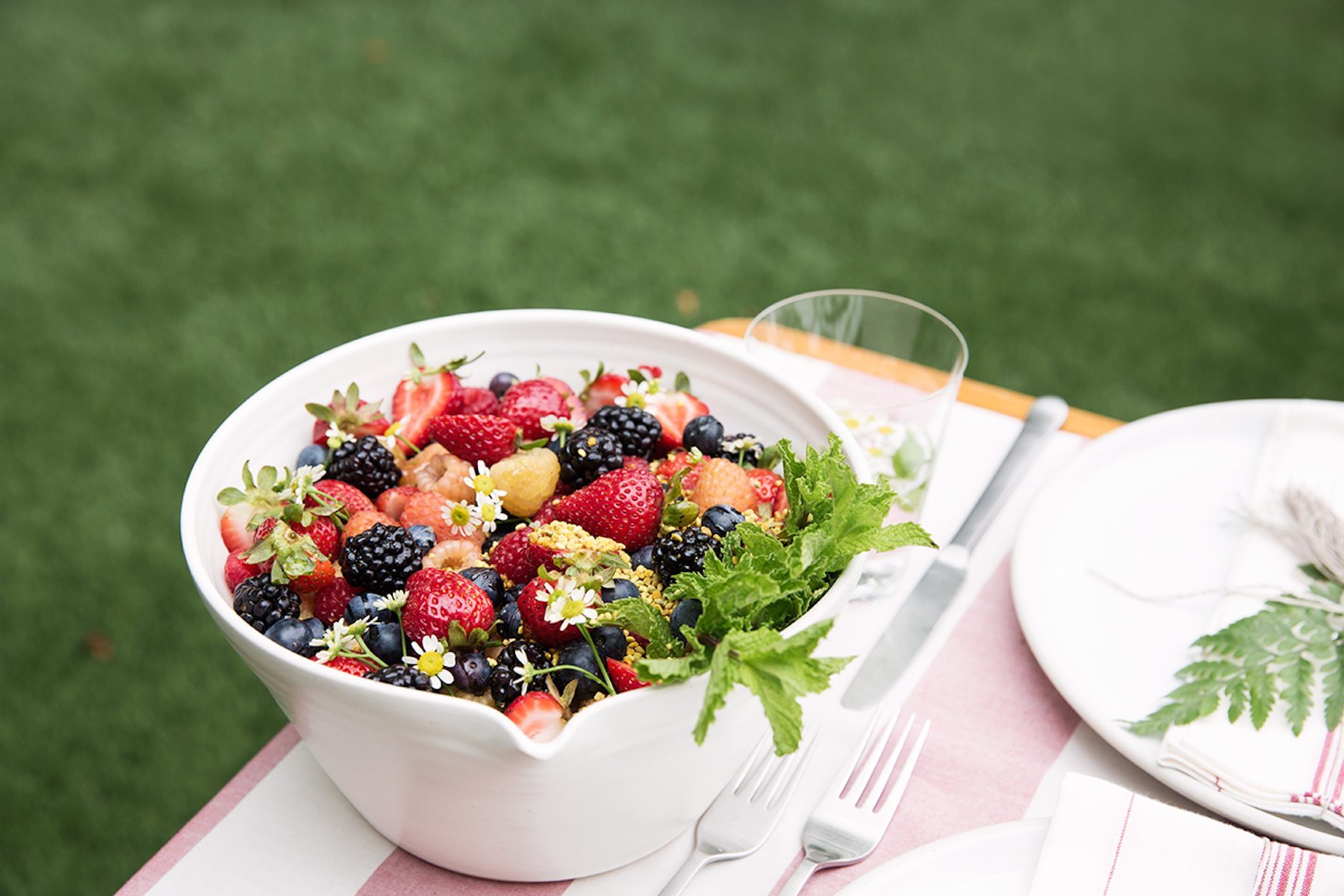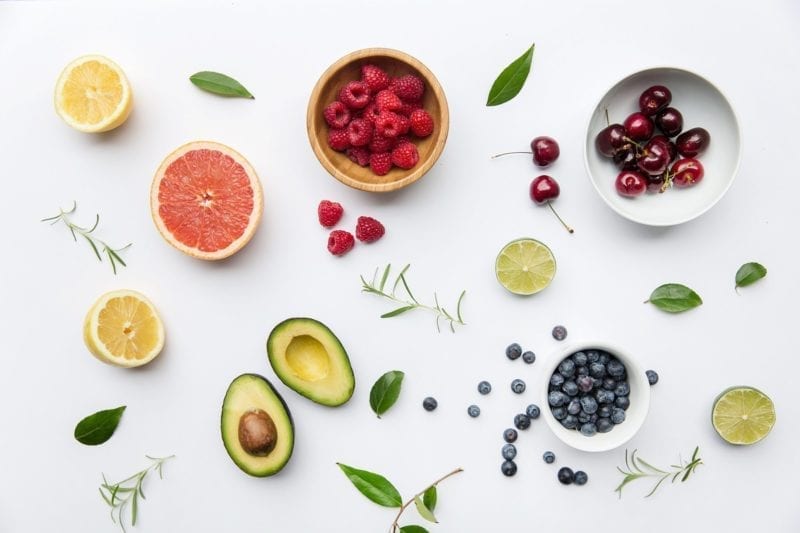In case you missed it, we’re having nutritional expert Mikaela Reuben* step in to answer some of the most common food questions she gets asked on the job as a celebrity chef, Certified Raw Food Chef, Holistic Nutrition Counselor CHHC and AADP. Below she’s diving in for part two, talking about saturated fats, gluten and our skin.
Q: Coconut oil is a saturated fat and I’ve heard that saturated fats are bad for us. Should we avoid it?
A: This is a question that comes up often. People are always concerned about coconut oil being a saturated fat, but it’s claimed to be one of the best things for us. So, whats to give?
Although most of the concern lies around the fear of high cholesterol with saturated fats containing a large amount of LDL cholesterol (bad cholesterol), coconut oil contains increasing amounts of HDL cholesterol (good cholesterol), as well. HDL works powerfully to improve overall cholesterol levels in the body and massively reduces the risk of heart disease. This “magic” fat is primarily compromised of a very beneficial ingredient called lauric acid. In the body, lauric acid is converted into monolaurin, a component that withholds very effective anti-bacterial and anti-viral properties. Lauric acid is claimed to be a miracle fat for the high amount of health-promoting properties it contains. Wildly enough, coconut oil contains the most lauric acid of any substance on earth!
Q: Other than being celiac or having a gluten intolerance, are gluten-free options really a better choice?
A: Nowadays most wheat products are overly-processed, stripped of their beneficial nutrients and on such high demand that quality isn’t even of importance. Gluten-free products can be a good go-to for individuals trying to stay away from wheat-filled foods, however, the label “gluten-free” most definitely does not always equate with healthy.
Gluten-free products are often filled with added sugars, causing irritation to blood sugar levels which can cause fatigue and weight gain if consumed often. Depending on the type of alternative grains being used, they can also cause complications with the body’s ability to digest properly, causing bloating, upset stomach and continuous sugar cravings.
I would recommend to look for products that are sprouted and organic. Local is always best, but if not available, then choose to buy from a company that has a high quality reputation. In addition to this, a lot of gluten-free options such as GF oats, coconut flour, nut flours, chickpea flour, quinoa flour and so forth, contain various nutrients that wheat flour does not. Full of fiber, protein, healthy fats, various vitamins and minerals, gluten-free options often do contain a higher abundance of these nutrients. Always make sure to read all labels carefully and as with most things, consume these products in moderation!

Q: Why should we avoid fat-free foods?
A: Fat-free products have been on the market for years, claiming to help individuals loose weight fast and keep it off. This is an old myth that associates weight gain with the (unbelievably) beneficial and essential macronutrient “fat.” Still, even now a majority of people continue to believe this, purchasing fat-free products unaware of what companies are replacing the fat with, which in most cases is sugar.
Sugar is the culprit behind weight gain, whether it be through added sugars, complex carbs, natural sweeteners and even high sugar fruits. It’s all a conversation of moderation, where sugars alter our blood sugar levels creating an energetic boost when first consumed, then following with a crash. Once this crash happens, our bodies crave the high again, resulting in reaching for that afternoon baked good or sweet drink. Fat-free products react in the same way, because fat is blood-sugar stabilizing, essential for mental clarity, muscle movement, cellular growth and overall health. Sugar causes that blood-sugar fluctuation, causing our bodies to consume more sugary foods to keep our energy high and our sweet tooth satisfied.
If weight loss is a main goal, then I would always recommend a diet full of healthy fats, ensuring moderation is in place and alternating the types of fats often.
Q: Does the food you eat actually effect your skin health?
A: Remember when your parents used to say, “You are what you eat!” and the response would normally be an eye-roll and a continued gorge of whatever deliciousness you were in the process of consuming. Well, they were right. What we put into our bodies will show up in various ways, including our energy levels, sleeping habits, emotional stability, mental clarity, physical strength and, of course, our skin.
If we continue to put food into our bodies that we react with and are unaware of, we will eventually see some sort of result on the outside. Irritation from certain foods in the gut can cause inflammation and lead to a number of more serious diseases. This inflammation can appear as acne, eczema, psoriasis, rashes and so forth. If you are finding that you are suffering from continuous skin complications, I would recommend to keep a diet diary and pay close attention to the foods you eat and how you feel afterwards. Especially since a reaction to a specific food can take up to a week to show any signs.
*This information is educational only and not intended to treat, diagnose, cure or prevent any disease. Please consult with your medical professional before making any lifestyle or health-related decisions.
Have a food or dietary question? Ask in the comments and we’ll plan to answer in an upcoming post!
Images via Esther Lee










